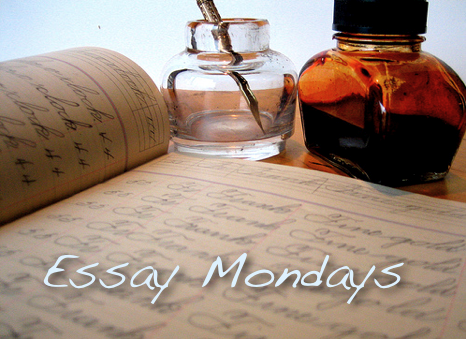
(Each week I read four essays from Philip Lopate's anthology The Art of the Personal Essay, and write about the one I find the most compelling.)
I tend to have a hard time with the poets of the era, so I was delighted to discover that I like Romantic essayist Charles Lamb quite a lot. From my brief introduction at the hands of Lopate, it seems like the personal essay form provides a quotidian counterpoint to the Romantic Sturm und Drang, and the inclusion of personal experience adds believability to the sentimentality I find so cloying in pieces like Wordsworth's "The Ruined Cottage." Maybe, in the essay, I've finally found a form in which I can enjoy Romanticism!
Lamb writes in a deliberately anachronistic style, and at first I found his "thee"s and "thou"s a bit affected. In remarkably short order, though, I stopped being bothered by his quirks, and started noticing the richness and satisfying texture of his prose. It's a style that lends itself to reading aloud, and I can understand why so many 19th and early 20th century writers reported circling the family around the roaring fire of an evening and reading from Lamb's collected works.
Then I told what a tall, upright, graceful person their great-grandmother Field once was; and how in her youth she was esteemed the best dancer—here Alice's little right foot played an involuntary movement, till upon my looking grave, it desisted—the best dancer, I was saying, in the country, till a cruel disease, called a cancer, came, and bowed her down with pain; but it could never bend her good spirits, or make them stoop, but they were still upright, because she was so good and religious. Then I told how she was used to sleep by herself in a lone chamber of the great lone house; and how she believed that an apparition of two infants was to be seen at midnight gliding up and down the great staircase near where she slept, but she said "those innocents would do her no harm;" and how frightened I used to be, though in those days I had my maid to sleep with me, because I was never half so good or religious as she—and yet I never saw the infants. Here John expanded all his eye-brows and tried to look courageous.
The above passage is from Lamb's "Dream Children: A Reverie," which is the only Lamb essay I'd read before, and such a striking and poignant piece. I would almost call it more of a "story" than an "essay," because of a certain narrative trick toward the end and the dramatic irony that creates throughout the whole essay, but whatever it is, I loved it. Lamb captures the rhythm of the fond yet melancholy father reminiscing to his eager children, and the vivid, everyday quality of their little gestures—the tapping foot, the attempt at a brave face—as they listen to his tale. His repetition of long sentences beginning with "Then I told..." create a rhythm that's almost like an incantation, mirroring the trance that good storytelling can create.
Reading these essays on the heels of so much Virginia Woolf, I'm reminded that Woolf was a big fan of Lamb's, and indeed I can see his influence even in this short selection. In particular, the long, astute sentences, carefully controlled with dashes and semicolons, look forward to her style. And the structure of "Dream Children: A Reverie" anticipates the Modernists' experimentation with point-of-view and the psychological novel. Lamb's remembered reactions to the death of a beloved uncle actually remind me a lot of Proust: how the emotions after a death never come when and how one expects them, but ambush one in odd and devastating ways.
...and how when he died, though he had not been dead an hour, it seemed as if he had died a great while ago, such a distance there is betwixt life and death; and how I bore his death as I thought pretty well at first, but afterwards it haunted and haunted me; and though I did not cry or take it to heart as some do, and I think he would have done if I had died, yet I missed him all day long, and knew not till then how much I had loved him.
I'm glad to have finally sampled the work of an essayist about whom I've heard so much, and I might just seek out a fuller picture of Lamb in the future.
Up next week: we're rocketing toward the Victorian Age, with two essays by William Hazlitt and two by Robert Louis Stevenson.
Badge photo courtesy of Liz West:

